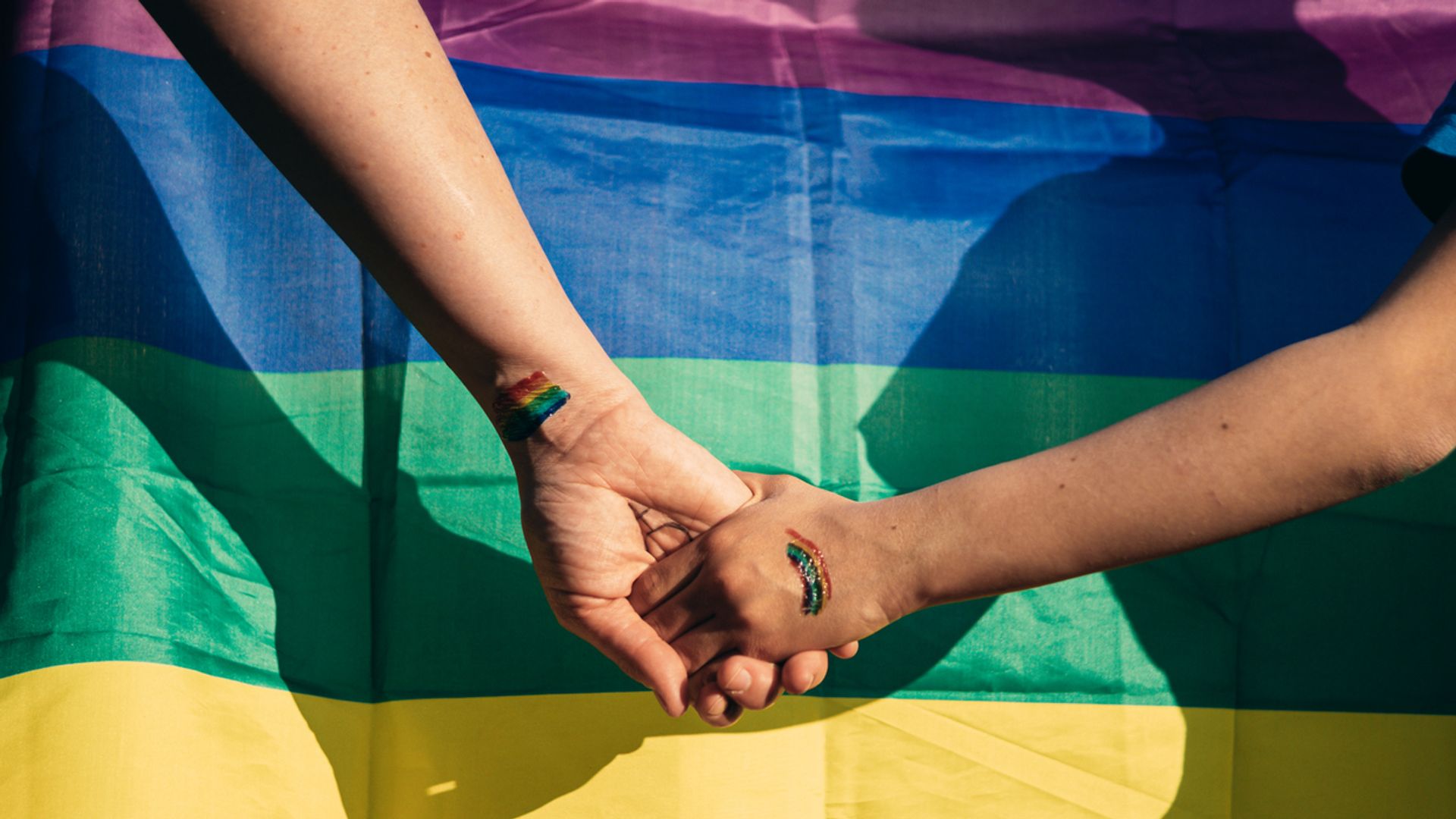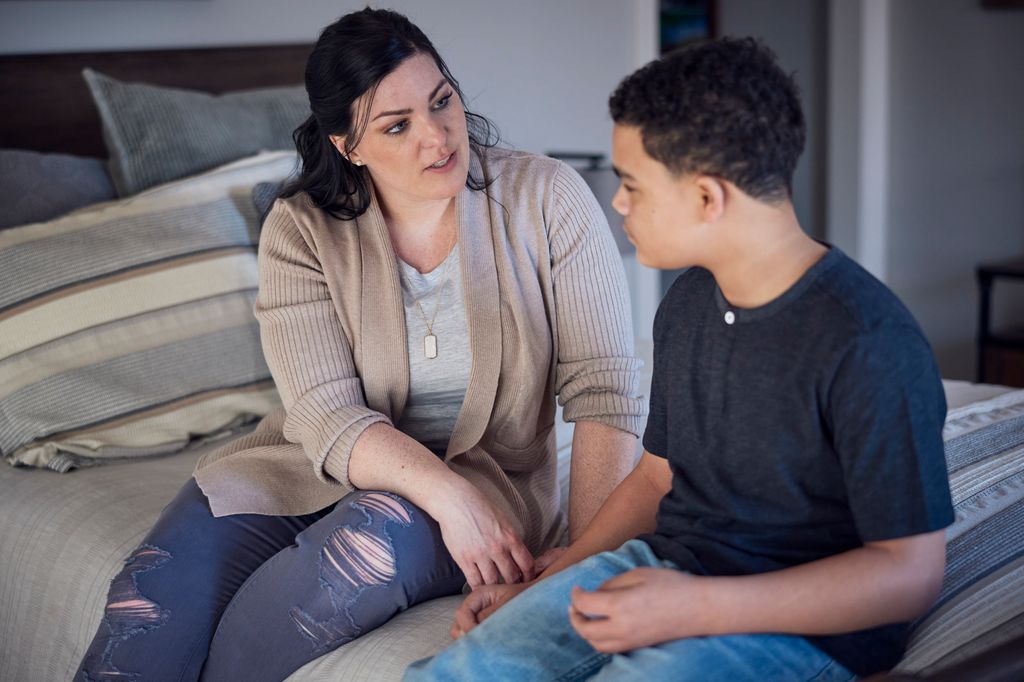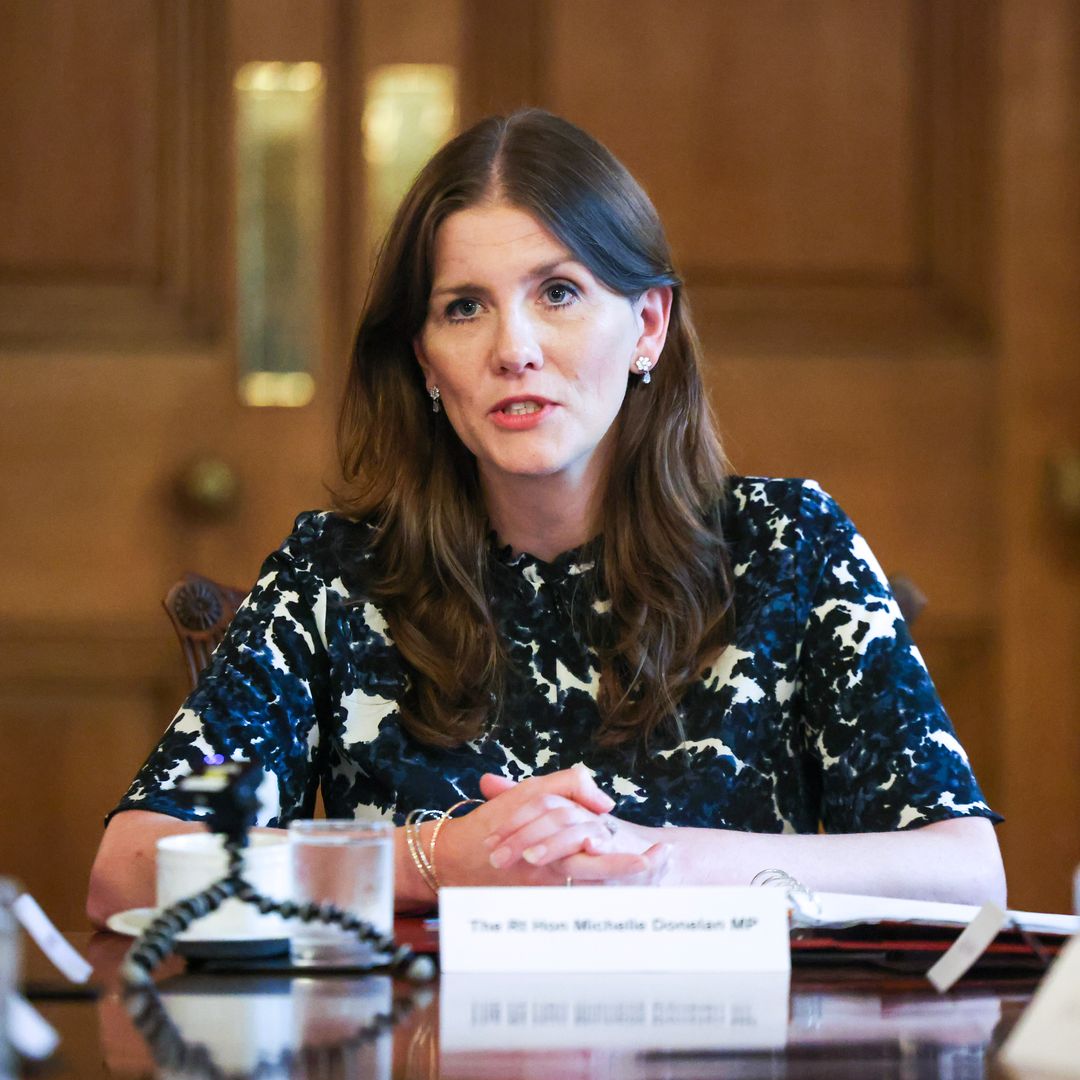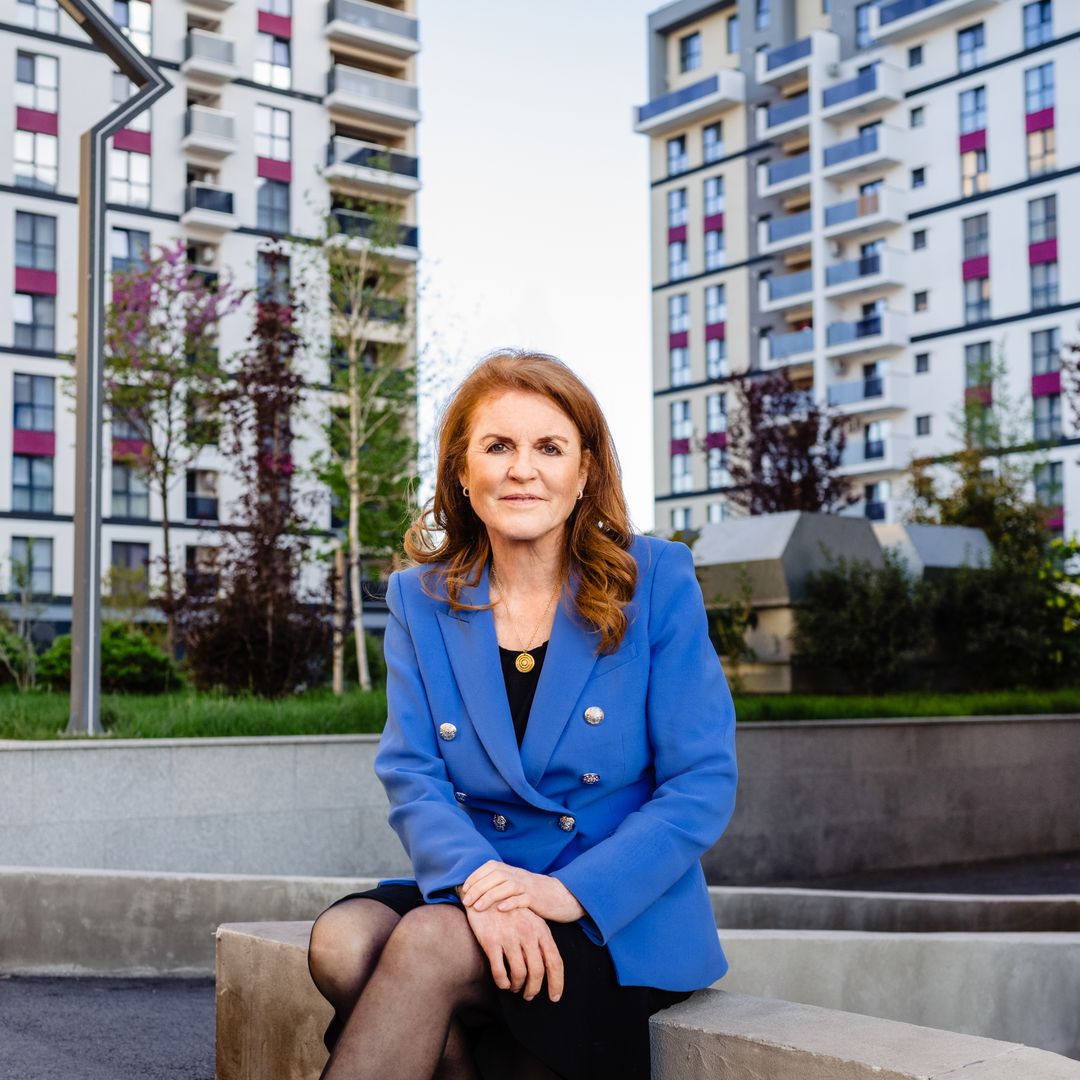If you're a parent of a child or teenager who identifies as LGBTQ+, then you may be looking for advice on how best to support their well-being and mental health.
LGBTQ+ stands for Lesbian, Gay, Bisexual, Transgender, Queer/Questioning, and other sexual and gender identities, while LGBTQIA+ also includes those identifying as Intersex or Asexual.
In a recent survey of 11 to 18-year-olds in the UK by Just Like Us, LGBTQ+ young people were found to be twice as likely to experience depression, anxiety and panic attacks than those who are not LGBTQ+.
It's important to note, however, that being LGBTQ+ doesn't automatically mean someone will have mental health issues.
Dr. Hugh Love Jr., a psychologist at New York-Presbyterian / Columbia University Irving Medical Center, says: "One of the greatest indicators for good health outcomes in LGBTQIA+ youth is having affirming spaces, particularly if that place is home.
“Having a positive environment can help them gain a strong sense of self and know that they have someone to help navigate the difficult aspects of their life."
Below, Dr. Love shares his advice on how parents of LGBTQIA+ youth can create that safe space for their child, including ways to keep communication lines open.
Centre conversations around their experience
"There may be feelings of loss when parents find out there’s something about their child’s identity that they either know little about or they may not agree with.
“While you’re experiencing distress, keep in mind that your child is probably experiencing more. They’re exploring and coming to terms with their own identity.
"Making it about you and your belief system, and how you feel, or what you want, is often not the right route to take. You can either continue to form a great alliance with your child, or you can potentially push them away.
“Don’t assume that because they want you to know, they’re ready to discuss everything with the rest of the family. You will want to get permission from your child to share something about them that maybe others don’t yet know.”
Educate yourself
"There’s something about a parent getting information on their own that inherently says to a child that they care enough to go the extra step.
"Have conversations with your child, but don’t make them the sole person who has to tell you everything about the LGBTQIA+ community."
Be mindful of your words and actions
"Whether or not your child identifies as LGBTQIA+, be careful about what you say and do around them, because children are sponges and they’ve been listening and watching you the entirety of their lives.
“There is a vigilance that comes along with having a minority identity. You’re constantly searching for sources of threat, and you’re also looking for sources of support. So you’re hypervigilant — you’re paying very strong attention to what people around you are saying about those identities that you’ve either disclosed or not.
"You don’t want to say you accept them but then your behaviors are contrary to this. They are paying attention to you now more than ever because they’ve revealed something about themselves and they’re really searching and looking for your response over time."
Find out how your child would like to be supported
"Remember your child is an individual and there may be different things they need assistance with or that they’ll invite you to be a part of in their life."
Supportive actions can include:
- Welcoming friends or partners who are LGBTQIA+
- Having respectful conversations about their identity
- Using the correct name and pronouns
- Supporting their gender expression
If you don’t know where to begin, ask open-ended questions, such as:
- What do you think would be important for me to know?
- What can I do to help?
"It gives them power in what can be a very powerless time and could potentially open the door to more in-depth conversations."
Look for positive models of LGBTQIA+ representation
Helping children find positive representations of themselves in media or everyday life can help affirm their identity and create self-esteem.
"The more positive representations they can see, the more community they can form and you can form with them to bolster their confidence and ability to navigate the world."
Look out for signs of mental health struggles
"When we’re not affirming or supportive, they either find that from others who may be negative influences, or they turn inward and you have a lot of these internalising issues that could ultimately lead to suicide attempts."
Signs that a child or teen may be struggling include:
- Withdrawal
- Significant changes in friendships
- Increased clinginess to family
- Marked changes in self-care, such as not brushing hair or washing clothes
- Self-injury
When searching for a healthcare professional, you can research LGBTQIA+ friendly medical and mental healthcare providers to make sure they’re the right fit for your child’s needs.
Be their biggest advocate
"Listen to what they’re telling you about their interactions in the outside world. Based on what they’re saying, assess whether this is a place where you want to intervene or if, instead, it’s an area for skill-building.
"As much as we want to keep them safe, there are many situations you won’t be around for, particularly as they get older."
In school, having an active presence where appropriate is also helpful for fostering affirming and safe spaces, such as advocating for a gay-straight alliance or a more inclusive curriculum.
"Parents’ voices carry a lot of weight in the school system. Don’t be afraid to speak up."
Remind them that they are loved
"The coming out process is one that is rife with fear, because children may feel like the people who have raised them and loved them to this point are in some ways going to reject them.
"Keep the lines of communication open with your child and have your actions and words reflect your love for them."
Dr. Hugh Love Jr. is a licensed clinical psychologist at NewYork-Presbyterian Hospital/Columbia University Irving Medical Center, where he provides behavioral health services to young adult clients ages 14-24.












